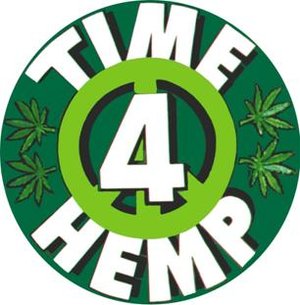The Roots Of Medical Cannabis Research
Host, Casper Leitch, discuss the history of medical cannabis research with Al Byrne, Dr. Donald Abrams, Dr. Ethan Russo, Dr. Denis Petro, Dr. Raphael Mechoulam, Dr. Andrew Weil and Mary Lynn Mathre.
The Global Medical Cannabis Market Require Constant Research
Host, Casper Leitch, and Joint Host, Al Byrne, and the various speakers discuss the challenges and benefits of medical cannabis research and use in the United States and Europe and how it has led to a new era of marijuana research.
Dr. Andrew Weil, a renowned author and founder of the University of Arizona Center for Integrative Medicine, discusses the importance of integrative medicine and its potential to reduce healthcare costs and shift the focus to health promotion and prevention. He also touches on the integration of cannabis into the medical system, expressing the need for more education and medical preparations. He also mentions his past research on marijuana, including some of what he about the endocannabinoid system and its role in regulating various functions in the body.
Dr. Donald Abrams shares the difficulties of securing funding and cannabis for medical research due to its Schedule I classification. He also shares his personal experience with medical marijuana and expresses confidence in the eventual total acceptance of cannabis for both recreational and medical use.
Dr. Raphael Mechoulam, known as the "grandfather of medical cannabis," discusses the benefits of using cannabis in conjunction with opiates for pain relief and as a sleep aid. Researchers have identified THC and CBD as the active constituents in cannabis, with THC being psychoactive and CBD having promising therapeutic uses.
The speakers also discuss the importance of spreading reliable information about cannabis and the endocannabinoid system, as well as the various properties and benefits of medical cannabis, including its neuroprotective and anti-inflammatory effects.
Dr. Ethan Russo emphasizes the safety and minimal withdrawal symptoms of cannabis use and encourages patients to consider vaporization for a cleaner experience. The speakers also touch on the use of cannabis for various conditions, such as cancer, epilepsy, and autoimmune diseases.
Dr. Petro recounts his early clinical findings with cannabis in the 1960s, including improved cardiac output measurements and remission from leukemia and MS.
Mary Lynn Mathre, a registered nurse and addiction specialist, discusses the importance of the nursing community in patient care related to medical cannabis.
Overview
The central focus is on the medical potential of cannabis, the challenges of research, and the evolution of global policy and public perception.
Integrative Medicine And Cannabis: Dr. Andrew Weil
Cannabis fits into the integrative medicine model: combining conventional and alternative approaches.
He highlights the safety profile of cannabis, lack of a lethal dose, and minimal toxicity.
Cannabis is poorly represented in traditional medical education, though it has profound botanical and therapeutic value.
Recounts his early cannabis research at Harvard in the 1960s, emphasizing the importance of endocannabinoid system discovery.
Cannabis in Oncology & Pain Management: Dr. Donald Abrams
Details the historical use of cannabis by cancer patients to combat nausea, appetite loss, and pain.
Describes systemic barriers to U.S.-based cannabis research, particularly due to the NIDA monopoly.
Advocates cannabis as a multi-symptom relief tool: effective for sleep, pain, mood, and appetite.
Notes its potential in reducing opioid dependency and increasing quality of life for terminal patients.
Cannabis Chemistry & Endocannabinoid System: Dr. Raphael Mechoulam
Shares his groundbreaking work in isolating THC and CBD in 1964.
Introduces anandamide and 2-AG, the body’s natural endocannabinoids.
Describes the CB1 and CB2 receptors, with CB1 linked to psycho-activity and CB2 to anti-inflammatory effects.
Emphasizes the under-explored potential of 200+ cannabis-like compounds produced by the body.
Speculates on the role of the endocannabinoid system in personality, immunity, and disease prevention.
European Cannabis Advocacy & Education: Dr. Ethan Russo
Co-founder of the International Association for Cannabis as Medicine (IACM).
Details research efforts across Germany, Spain, and the UK, especially in cancer, anxiety, and PTSD.
Describes diverse European policies, from tolerant (Spain, Netherlands) to restrictive (France, Greece).
Stresses the need for medical education reform and public awareness about cannabis science.
Clinical Practice & Patient Outcomes: Dr. Petro
Longtime cannabis clinician in California, seeing 2,000+ patients.
Advocates cannabis as a front-line therapy for pain, inflammation, PTSD, sleep, cancer, epilepsy, and more.
Shares compelling stories of tumor regression and symptom relief.
Describes cannabis as a tool for restoring homeostasis, with minimal side effects and broad application.
Conducted one of the first U.S. clinical trials on cannabis for multiple sclerosis (MS) in the 1980s.
Notes cannabis’ effectiveness for ALS, Parkinson’s, MS, and seizure disorders.
Criticizes U.S. research restrictions, despite government patents on cannabis as a neuroprotectant.
Emphasizes cannabis' potential for symptom relief and disease progression slowing in neurology.
Cannabis & Nursing Care: Mary Lynn Mathre (RN)
President of the American Cannabis Nurses Association.
Argues cannabis can streamline medication regimens, reduce nursing stress, and improve patient compliance.
Highlights its variety of delivery methods (vapor, salves, tinctures, edibles).
Describes the role of nurses as trusted caregivers and advocates for cannabis’ medical legitimacy.
This episode presents cannabis as a versatile, evidence-backed medicine with global momentum, used for everything from epilepsy to end-of-life care. Despite political barriers, expert consensus highlights the scientific validity and therapeutic safety of cannabis, urging more education, acceptance, and clinical integration.
Notable Quotes
“Cannabis is probably one of the safest therapeutic agents. You can't even establish a lethal dose.”
- Dr. Andrew Weil -
“Cannabis is one medicine that can speak to nausea, pain, sleep, appetite, and mood.”
- Dr. Donald Abrams -
“THC mimics anandamide. These are compounds made by the brain that regulate many systems.”
- Raphael Mechoulam -
“Most patients would rather grow their own cannabis than fill five prescriptions.”
- Dr. Jeffrey Hergenrather -
“Cannabis is not addictive in the way many other medications are, it’s empowering.”
- Mary Lynn Mathre -

